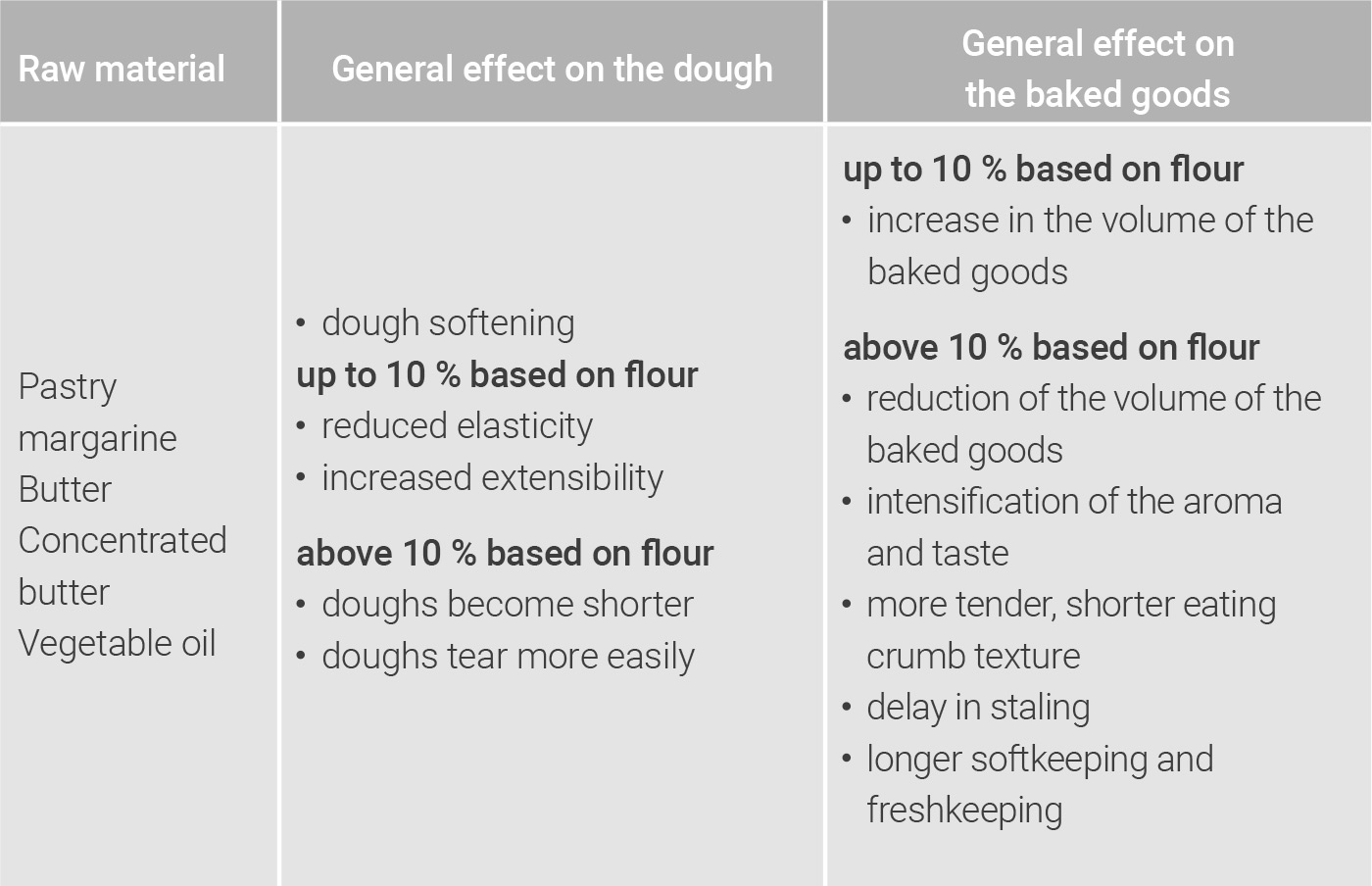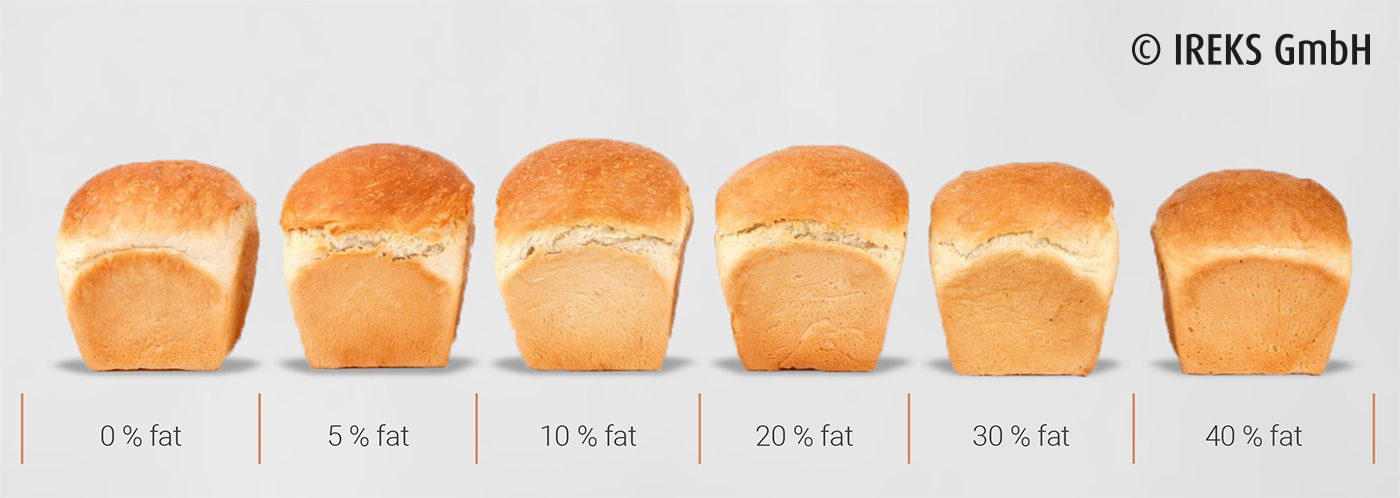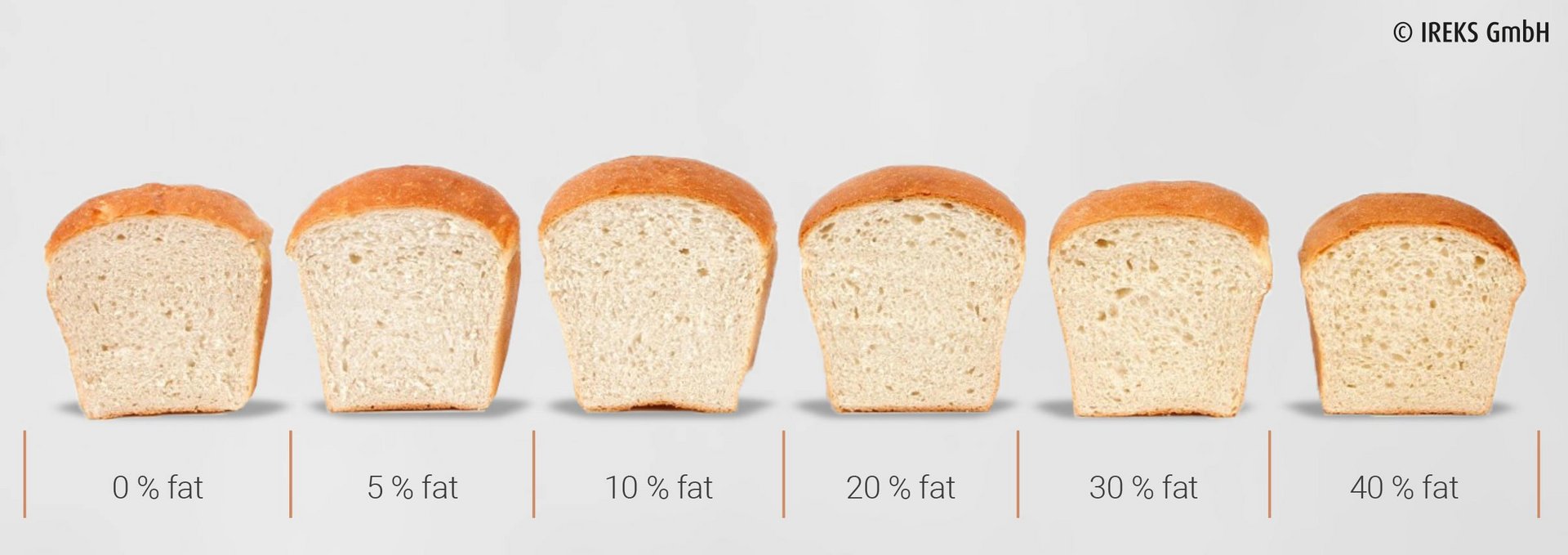The choice of the fat for confectionery yeast doughs takes place according to qualitative, technological or economic demands.
Margarine or butter are most frequently used, vegetable oil is used less often. Due to the higher melting point of margarines in comparison to butter, the doughs are more stable and have a higher fermentation tolerance at common fermentation temperatures of 32° C.
Butter is, particularly for reasons of taste, used for high-quality baked goods. Here cooler doughs are used during the entire process to achieve optimum results. Vegetable oils are used less often. They are used for confectionery yeast doughs to a percentage of up to 10 % based on flour. The doughs with vegetable oil are softer and have less fermentation stability.
The development of the gluten network is supported with amounts of fat of up to 5 %. Due to the higher quantities of addition, the swelling processes are delayed. The doughs become shorter, softer and have a lower gas retention property. In this way, the fermentation stability and the volume of the baked goods are reduced. The lowering of the proof performance of the yeast results from the lower amount of free water in the dough and the higher osmotic pressure connected to this.



